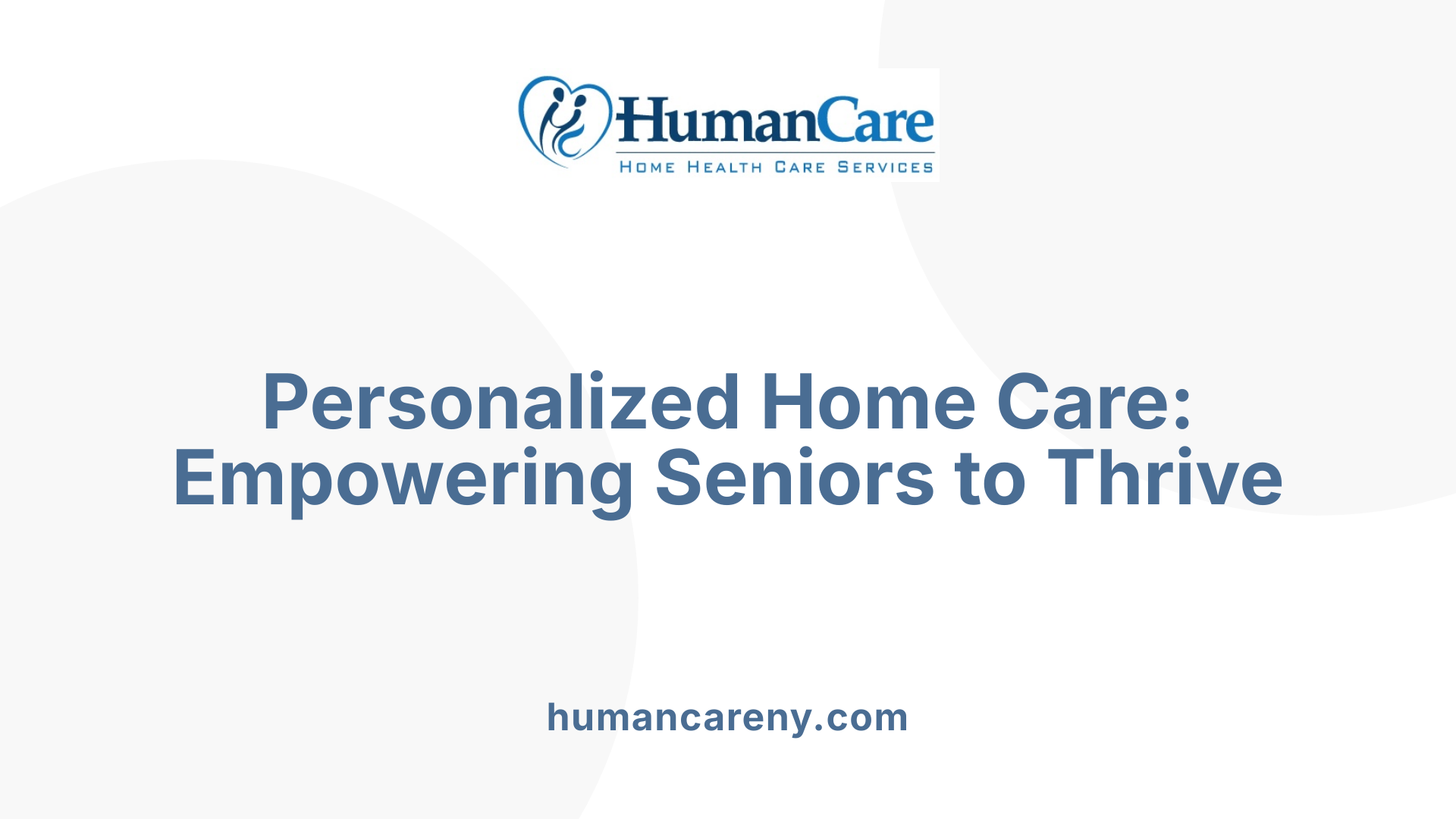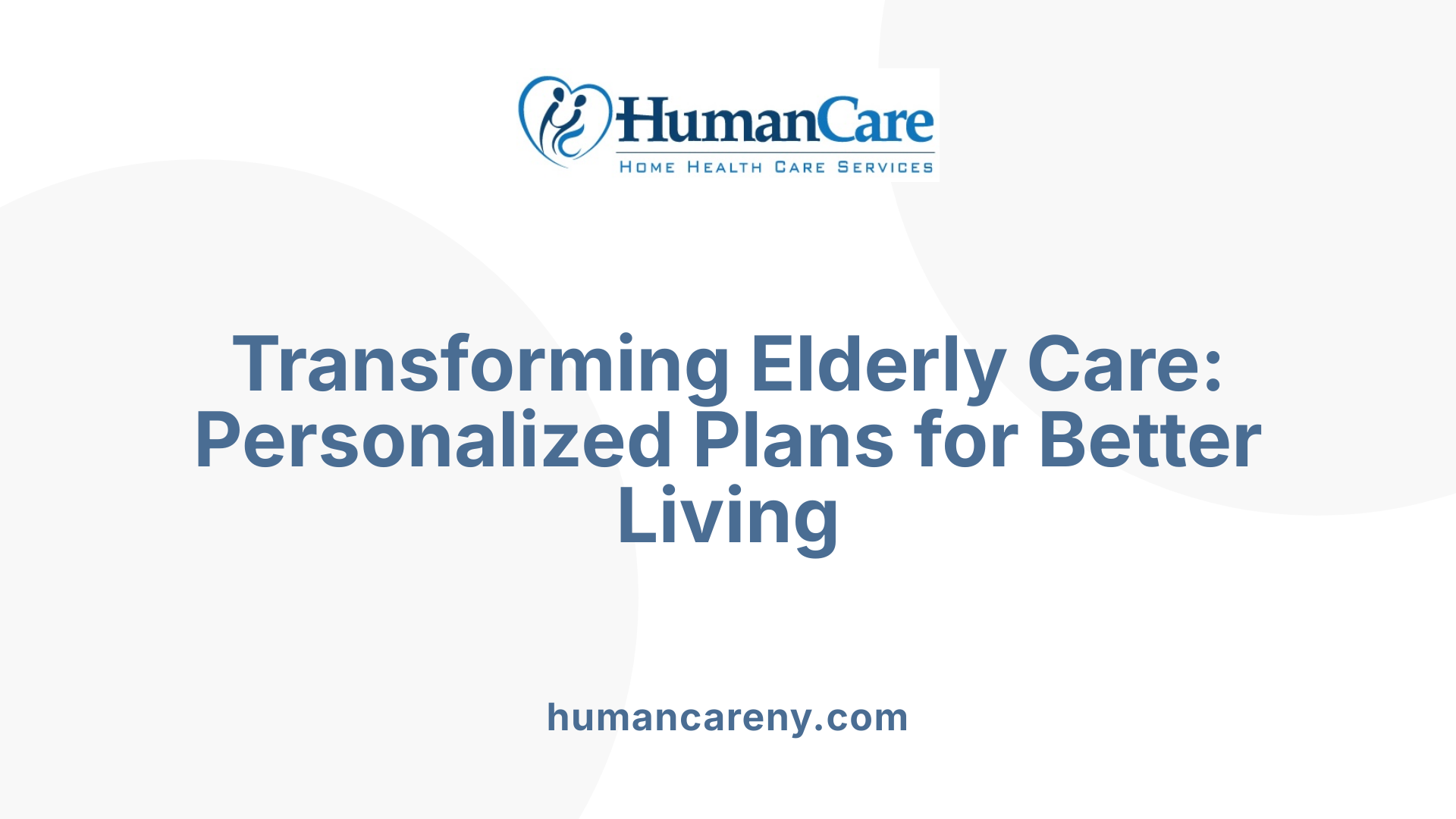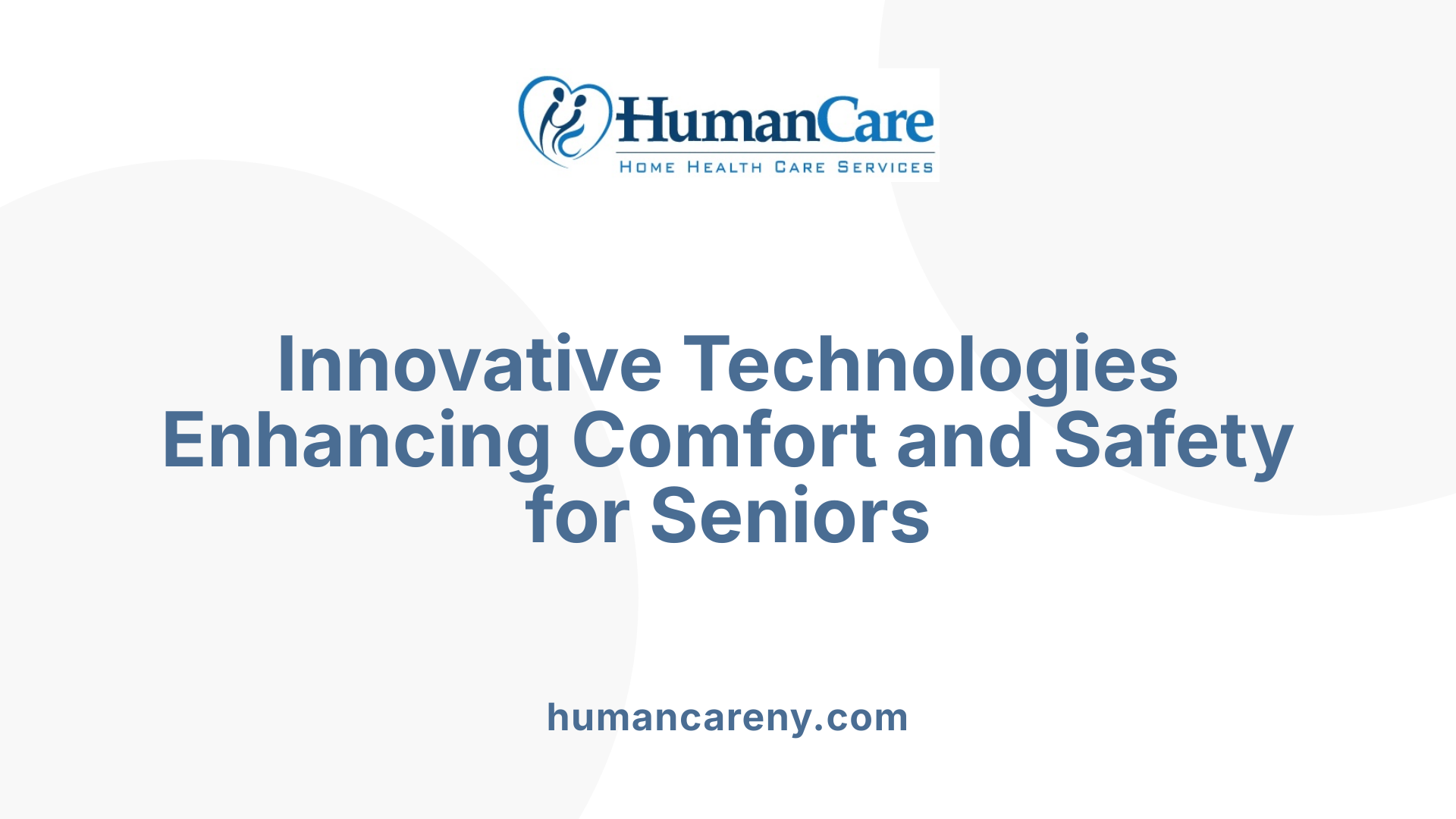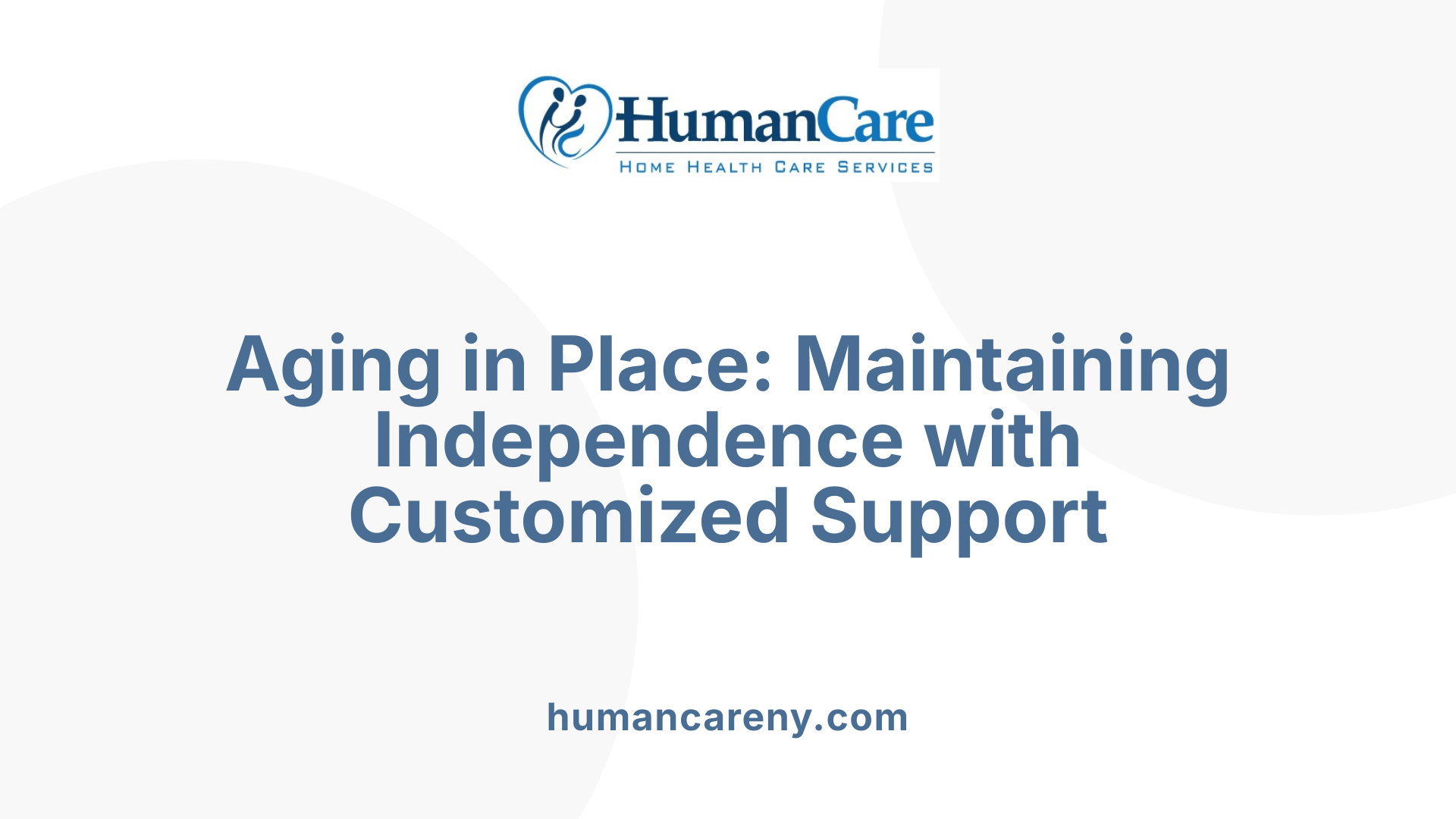Personalized Care as a Catalyst for Better Aging Experiences
As the global population ages, the importance of personalized home care becomes increasingly evident. Tailored services not only support the physical health of seniors but also foster emotional stability and independence, ultimately transforming their quality of life. This article explores how customized care plans and emerging technologies are redefining elderly care, ensuring that seniors enjoy their golden years with dignity, comfort, and connectedness.
Understanding Personalized Home Care and Its Impact on Elderly Life

What is personalized home care and how does it impact the quality of life for elderly individuals?
Personalized home care is a tailored approach to supporting elderly individuals, focusing on their unique health, emotional, and daily living needs. This type of care involves developing individualized plans that respect the personal preferences, routines, and cultural backgrounds of seniors. Caregivers assist with daily activities like bathing, dressing, and meal preparation to promote independence and physical well-being.
Beyond physical help, personalized care emphasizes emotional support and social engagement. Caregivers often serve as companions, helping to combat loneliness and enhance emotional health through meaningful interactions. The use of modern technologies such as telehealth, remote monitoring, and mobile health apps further supports seniors by providing real-time health data, medication reminders, and easy access to healthcare professionals.
This customized approach can significantly boost safety by implementing home safety assessments, fall prevention strategies, and emergency systems tailored to each individual. Additionally, flexible care plans allow for adjustments as health conditions change, ensuring continuous support.
The overall impact of personalized home care on quality of life is profound. It fosters a sense of autonomy and dignity, helps manage chronic health issues more effectively, and promotes emotional well-being. By enabling seniors to live comfortably and safely at home, personalized care reduces hospital visits, eases caregiver burdens, and creates a supportive environment where seniors can thrive physically, emotionally, and socially.
Benefits of Personalized Home Care for Seniors’ Physical, Emotional, and Social Well-Being
What are the benefits of personalized home care for seniors' health, independence, and emotional well-being?
Personalized home care offers a wide range of advantages that significantly enhance seniors' overall quality of life. Tailored care plans are designed around an individual's specific health conditions and personal preferences, which helps in effectively managing chronic illnesses such as diabetes, chronic obstructive pulmonary disease (COPD), and dementia. This focused approach leads to better health outcomes, fewer hospital visits, and improved recovery.
Remaining in a familiar home environment provides emotional comfort and reduces stress and anxiety. It helps seniors feel more secure and maintains their mental health by decreasing feelings of loneliness and social isolation. Such emotional stability is crucial for fostering happiness and a sense of independence.
Support with daily routines, like bathing, dressing, and medication management, encourages autonomy. Seniors are able to perform essential activities with just the right level of assistance, preserving their independence and dignity.
Additionally, personalized home care emphasizes social engagement through companionship and activities aligned with personal interests. Regular social interaction combats loneliness and promotes cognitive health.
Families benefit too, gaining peace of mind knowing their loved ones receive compassionate, customized care that addresses both medical and emotional needs. Overall, personalized home care creates a nurturing environment that supports seniors physically, emotionally, and socially, significantly enhancing their quality of life.
How Personalized Care Plans and Tailored Services Improve Elderly Well-Being

How do personalized care plans and tailored services improve the well-being of the elderly?
Creating personalized care plans involves comprehensive assessments of the senior's physical health, emotional state, social needs, home safety, and daily routines. Caregivers collaborate with healthcare professionals and family members to develop strategies that address specific health conditions, preferences, and life goals.
Support for physical needs includes assistance with daily activities such as bathing, dressing, meal preparation, and mobility. These services help prevent falls, improve chronic condition management, and promote balanced nutrition and physical activity, which together boost physical well-being.
Emotional and social support is integral to elderly care. Caregivers facilitate social engagement, companionship, and mental health services that combat loneliness and depression. Tailored activities that match individual interests and cultural backgrounds foster emotional satisfaction and a sense of purpose.
The flexible nature of these care plans allows for ongoing adjustments. Regular reassessments ensure that care remains aligned with evolving health conditions and personal preferences. Technologies like remote health monitoring and mobile apps support this adaptability, providing timely interventions and maintaining high-quality care.
In summary, personalized care plans improve the elderly's quality of life by respecting their independence, ensuring safety, managing health issues effectively, and enriching emotional well-being. This holistic approach helps seniors age with dignity, comfort, and happiness.
Technological Advancements in Home Care and Their Role in Improving Elderly Quality of Life

What role do personalized home care technologies play in enhancing the quality of life for elderly individuals?
Innovations in home care technology significantly improve the daily lives of seniors by promoting independence, safety, and health management. Devices like sensors and assistive tools help older adults perform daily activities more easily, reducing risks such as falls and ensuring chronic conditions are well-managed.
Telehealth platforms and remote monitoring tools enable seniors to communicate easily with healthcare professionals from home. This not only ensures timely medical intervention but also fosters a sense of connection and reassurance, easing anxiety and loneliness.
Social connectivity technologies, including videoconferencing and mobile apps, support social engagement by allowing seniors to stay in touch with loved ones and participate in community activities.
Furthermore, these digital solutions streamline care coordination, improve health outcomes, and can lower healthcare costs by reducing unnecessary hospital visits. Tailored, accessible technology empowers seniors to age in place comfortably, maintaining dignity, autonomy, and overall well-being.
| Technology Type | Function | Benefits |
|---|---|---|
| Sensors & Alarms | Fall detection, activity monitoring | Increased safety, proactive intervention |
| Assistive Devices | Mobility aids, medication reminders | Independence in daily routines |
| Telehealth & Video Conferencing | Virtual consultations | Easy access to healthcare, social support |
| Social Connectivity Apps | Messaging, video calls | Reduces loneliness, fosters social bonds |
Overall, innovative home care tools serve as vital support systems that help seniors maintain a higher quality of life, allowing them to remain active, connected, and healthy in the comfort of their own homes.
The Importance of Aging in Place and How Personalized Care Facilitates It

What is the concept of aging in place?
Aging in place refers to the ability of seniors to live safely, independently, and comfortably in their own homes for as long as they wish. This approach values familiarity, comfort, and independence, allowing older adults to retain their routines and social connections while receiving necessary support.
What are the advantages of aging in place?
Aging in place offers multiple benefits, including maintaining emotional well-being and a sense of autonomy. It can be more cost-effective than assisted living or nursing home care, offering personalized support tailored to individual needs. Staying in a familiar environment can reduce stress and improve overall quality of life, while also fostering stronger ties with family and community.
How does personalized care support aging in place?
Personalized home care is essential in facilitating aging in place by providing tailored services that address each senior’s health, safety, and emotional needs. Care plans are designed based on individual preferences, routines, and health conditions, ensuring that seniors receive just the right level of assistance.
Support strategies include safety assessments with home modifications to prevent falls, assistance with daily activities like bathing, dressing, and meal preparation, and medication management. These measures help seniors maintain independence while reducing risks.
Emotional and social engagement are also prioritized, combating loneliness and depression through companionship and community involvement. Regular interaction with caregivers fosters trust and emotional safety, further promoting well-being.
Care plans are flexible and adaptable, evolving with changing health conditions or personal preferences. Coordination with healthcare providers ensures comprehensive, continuous support.
In conclusion, personalized home care plays a pivotal role in enabling seniors to age in place. It maintains their dignity, independence, and connection to the life they cherish, making it a sustainable and fulfilling option for aging adults.
Research Evidence and Features of Effective Personalized Elderly Care

What does research say about the effects of personalized home care on elderly individuals?
Studies consistently show that tailored home care services greatly benefit older adults by enhancing their physical health, independence, and emotional well-being. Personalized care plans that consider individual health conditions, preferences, and routines lead to better management of chronic diseases, fewer hospital readmissions, and increased safety through risk reduction strategies like fall prevention.
Research highlights that such approaches also promote social engagement and combat loneliness. For example, programs adopting personalized models demonstrate improved mental health status, increased life satisfaction, and higher quality of life scores among seniors.
Furthermore, models like MDVIP and other preventive-oriented care systems help reduce healthcare costs by emphasizing early intervention and continuity of care. They also support emotional needs through companionship and family involvement, making seniors feel valued and respected.
However, while evidence underscores substantial benefits, ongoing research is crucial to develop comprehensive frameworks and prove the sustained economic and health advantages of personalized home care over the long term.
What are the defining features of personalized elderly care models?
Effective personalized care models typically include the following elements:
- Custom care plans tailored to individuals’ health, social, and cultural needs.
- Regular reassessments to adapt to changing conditions.
- Use of technology such as telehealth, remote monitoring, and mobile apps.
- Focus on safety, with modifications and fall prevention strategies.
- Emotional support through companionship and social activities.
- Coordination with healthcare professionals for seamless treatment.
- Family involvement in care planning and education.
- Flexibility to modify services depending on evolving preferences and health status.
These features, combined, enable seniors to maintain independence, dignity, and quality of life while reducing the burden on families and healthcare systems.
Conclusion: Personalized Care as a Pillar of Dignified Aging
The evidence and evolving practices clearly show that personalized home care profoundly affects the quality of life for elderly individuals. By integrating tailored services, innovative technologies, and continuous reassessment, this approach ensures seniors can age comfortably, safely, and with dignity. As society increasingly values aging in place, personalized care stands out as a vital strategy to support independence, emotional health, and overall well-being. Embracing these customized solutions promises a future where aging is not just about living longer but living better, with clarity, compassion, and connection.
References
- Enhancing Quality of Life: The Impact of Personalized Home Care
- Home Caregivers of Elderly People: Perceptions and Quality of Life
- The Impact of Home Care on Seniors' Well-Being: How Aging in ...
- Home Health Care: Improving Quality of Life for Seniors | AccuCare
- The Power of Personalized Care Plans for Seniors Aging at Home
- How Personalized In-Home Care can Improve Seniors Quality of Life
- Personalized Mobile Health for Elderly Home Care: A Systematic ...
- Elevating Quality of Life: The Impact of Home Health Care Services



